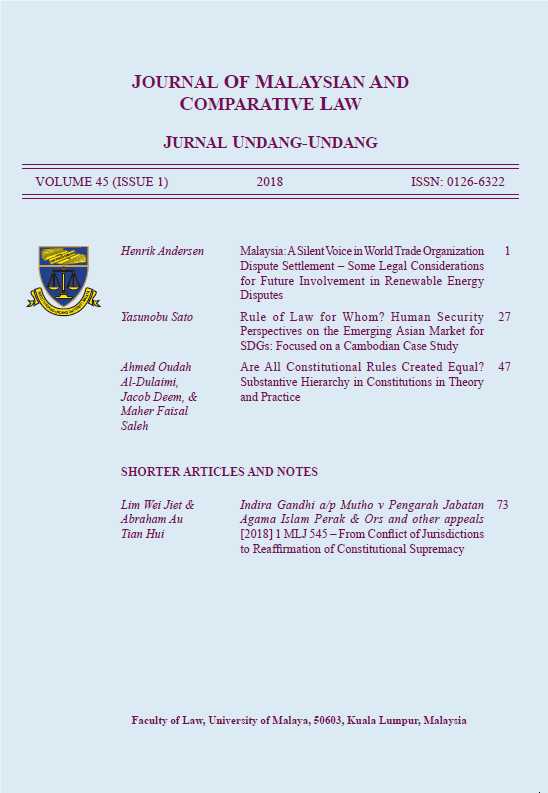Rule of Law for Whom? Human Security Perspectives on the Emerging Asian Market for SDGs
Focused on a Cambodian Case Study
Keywords:
rule of law, development, human, security, business rights, human rights, Cambodia, land grabAbstract
This article examines law reform assistance for establishing rule of law in Asia by case study. In Asian countries, land grab is commonly observed as the regional market economy develops. In Cambodia, local and international NGOs jointly submitted a complaint against ANZ Bank, at the Australian National Contact Point (NCP). The NCP, established under the Organisation for Economic Cooperation and Development (OECD) is the body responsible for furthering the OECD Guidelines for Multinational Enterprise. In this case, the ANZ Bank had allegedly funded a local land grab company for a sugar cane plantation by means of an economic land concession, under the local Land Law, passed in 2001. The Asian Development Bank (ADB) assisted in drafting this law. Subsequently, relying on the 2011 UN Guiding Principles on Business and Human Rights, local farmers who lost their land, have access to remedy, however the most vulnerable persons lost their jobs at the plantation without any compensation. Without the human security perspectives from the local context, transnational soft law like the UN Guiding Principles and the OECD Guidelines could harm local vulnerable peoples. As a result, these principles and guidelines are potentially ineffective for protecting and respecting human rights as well as promoting access to justice for them. How then can Goal 16 of the UN Sustainable Development Goals (SDGs) be achieved, in the emerging Asian market?
Downloads



